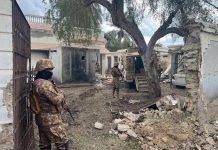A tragic incident unfolded in Mastung on September 29th when a suicide attack targeted the Eid Milad-ul-Nabi procession near Al-Falah Mosque. This horrific event claimed the lives of over fifty individuals and left more than forty others injured, with many in critical condition.
Baloch intellectuals assert that the Pakistani army, in its bid to quell the Baloch freedom movement, has fostered religious extremism in Balochistan, attempting to organize and propagate it. These actions have raised concerns among Baloch intellectuals and anti-terrorism experts, who fear that nurturing religious extremists will not halt the Baloch insurgency but will instead destabilize the entire region.
The alleged cultivation of religious extremism in Balochistan and Pashtun areas by Pakistan will inevitably have repercussions within Pakistan itself. The use of religion as a tool against subjugated nations has contributed to the growth of violent religious extremism in Balochistan.
Mastung has, unfortunately, long been a hotbed for religious extremists, as evidenced by a prior suicide attack in 2018 that claimed more than two hundred lives. The Hazara community, in particular, has faced recurrent attacks in these regions. The state’s tendency to downplay these tragic events by attributing them to foreign influences, followed by the disappearance and subsequent staged encounters of individuals, has only exacerbated the situation.
State policies aimed at quashing the Baloch insurgency have weakened political institutions in Balochistan, leaving a void in the fight against religious extremism. It is imperative to develop a strong political front to counter extremism and foster a more politically stable environment in Baloch society.






























